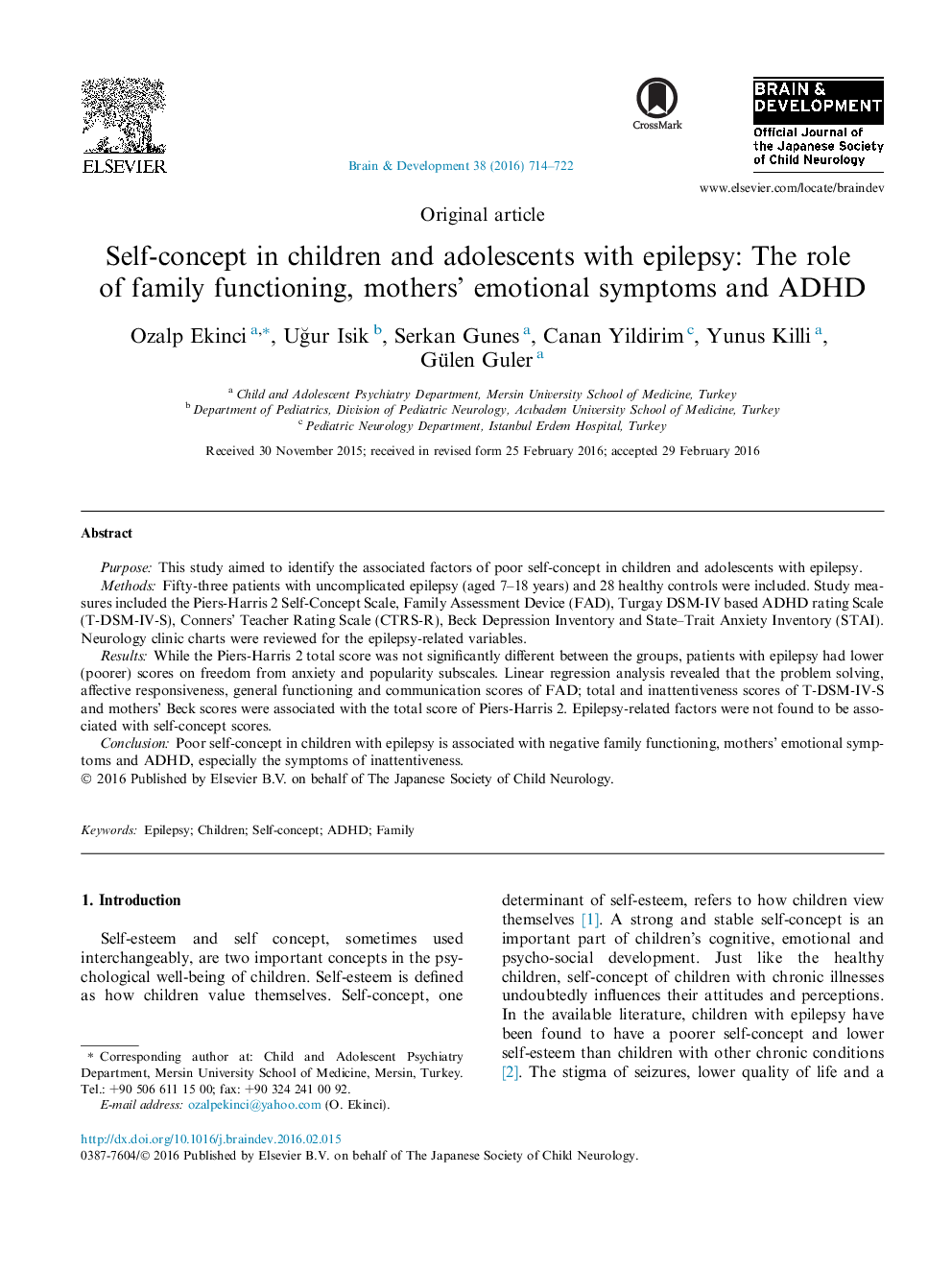| کد مقاله | کد نشریه | سال انتشار | مقاله انگلیسی | نسخه تمام متن |
|---|---|---|---|---|
| 3036446 | 1184370 | 2016 | 9 صفحه PDF | دانلود رایگان |
PurposeThis study aimed to identify the associated factors of poor self-concept in children and adolescents with epilepsy.MethodsFifty-three patients with uncomplicated epilepsy (aged 7–18 years) and 28 healthy controls were included. Study measures included the Piers-Harris 2 Self-Concept Scale, Family Assessment Device (FAD), Turgay DSM-IV based ADHD rating Scale (T-DSM-IV-S), Conners’ Teacher Rating Scale (CTRS-R), Beck Depression Inventory and State–Trait Anxiety Inventory (STAI). Neurology clinic charts were reviewed for the epilepsy-related variables.ResultsWhile the Piers-Harris 2 total score was not significantly different between the groups, patients with epilepsy had lower (poorer) scores on freedom from anxiety and popularity subscales. Linear regression analysis revealed that the problem solving, affective responsiveness, general functioning and communication scores of FAD; total and inattentiveness scores of T-DSM-IV-S and mothers’ Beck scores were associated with the total score of Piers-Harris 2. Epilepsy-related factors were not found to be associated with self-concept scores.ConclusionPoor self-concept in children with epilepsy is associated with negative family functioning, mothers’ emotional symptoms and ADHD, especially the symptoms of inattentiveness.
Journal: Brain and Development - Volume 38, Issue 8, September 2016, Pages 714–722
